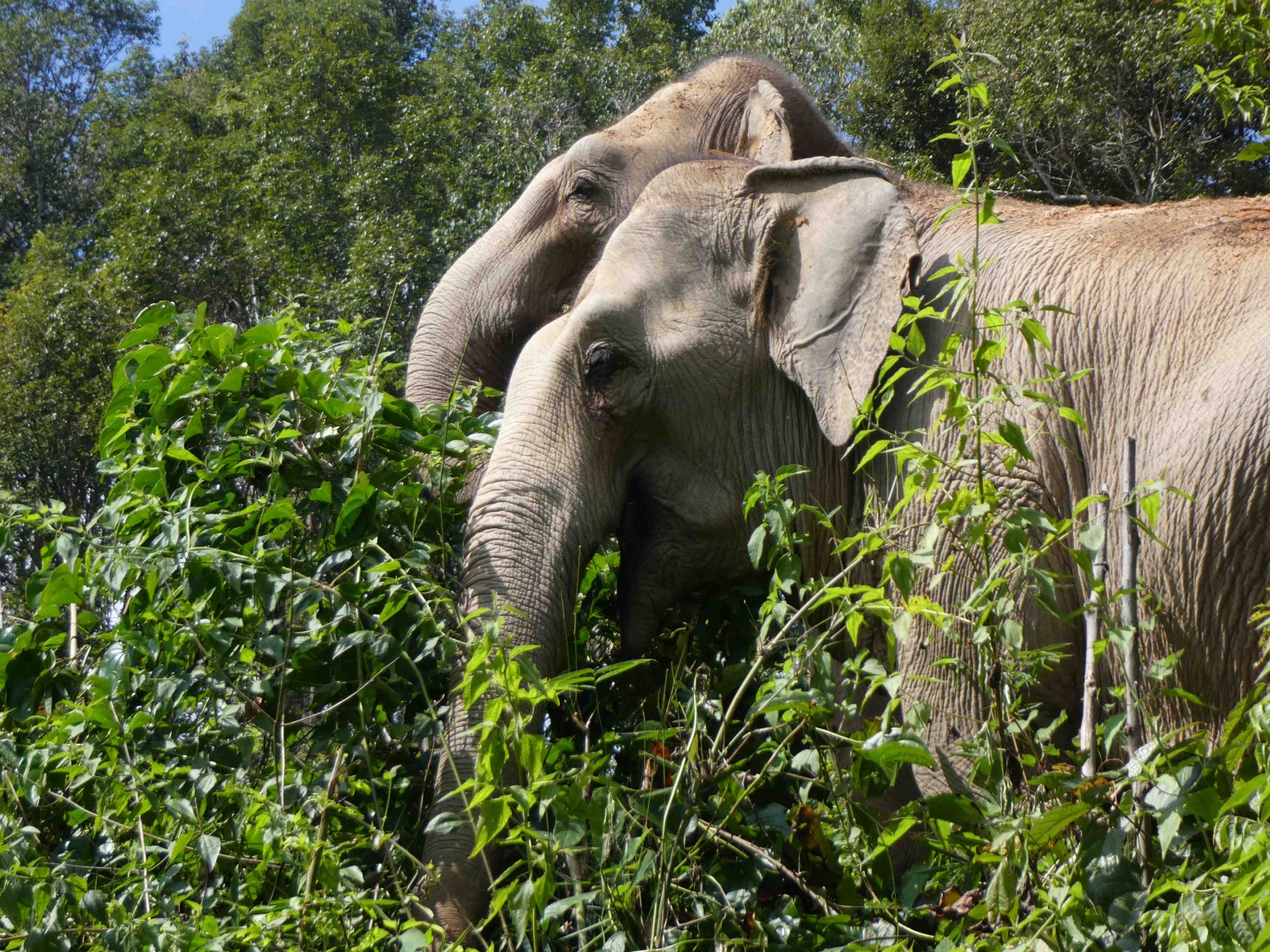“This herb is excellent at clearing up haemorrhoids,” explains Atichart Chatpisitchaikul, or “Tong”, my guide at the ChangChill elephant camp in the hill country outside of Chiang Mai in northern Thailand.
My fellow trekkers and I glance down at the mountainous pile of poop at our feet and wrinkle our noses in unison before Tong pushes on up the hill and we follow behind, bamboo trekking poles helping to speed our ascent to the top of the slippery slope.
Eating around 10 per cent of their body weight in food every day, it’s no surprise that a four-ton elephant processing 400kg of bamboo, sugar cane, leaves and bananas may need a little anorectal assistance now and then.
Here at ChangChill, the camp’s four resident elephants are visited fortnightly by a vet, with 24/7 interim care provided by their own PA: a local mahout, or elephant buddy, who keeps them content and leaves the visiting guests safe. The name ChangChill is an appropriate one: in Thai, ‘chang’ means elephant and ‘chill’ means relaxed.

Read more: Thailand travel guide – Everything you need to know before you go
ChangChill is one of three elephant camps I experience on a two-week journey through Thailand with the Experience Travel Group, which offers immersive adventures across Asia. It’s also one of a new breed of ethical camps working to tempt travellers away from the exploitative elephant shows and elephant riding experiences which still operate in Thailand. In the eight-acre forest at ChangChill, there’s no riding, no touching, and the sharp bull hooks traditionally used by mahouts to exert control over their animals are nowhere in sight. Instead, we trek into the forest to watch elephants foraging from 10–15 metres away, chop sugar cane which they eat while we watch from an observation deck, and make energy balls of banana, tamarind, rice husks and the all-important medicinal herbs, which are fed to them by their mahouts, rather than us.
“The elephants roam free around the property: they live well and eat well,” says the camp’s chief mahout, Chira Pongpathapee. “When I was young, I always saw elephants working hard logging or carrying tourists, but now they live in a different world. Here, they are…
Click Here to Read the Full Original Article at The Independent Travel…
